AKASHA Reloaded: Unifying the Ecosystem with Ethereum World
On October 11th 2019 at Devcon 5 in Osaka, AKASHA Founder, Mihai Alisie, announced Ethereum World, a project which seeks to unify the Ethereum ecosystem by integrating decentralized apps into a simple, delightful social experience. This is a transcript of that talk.
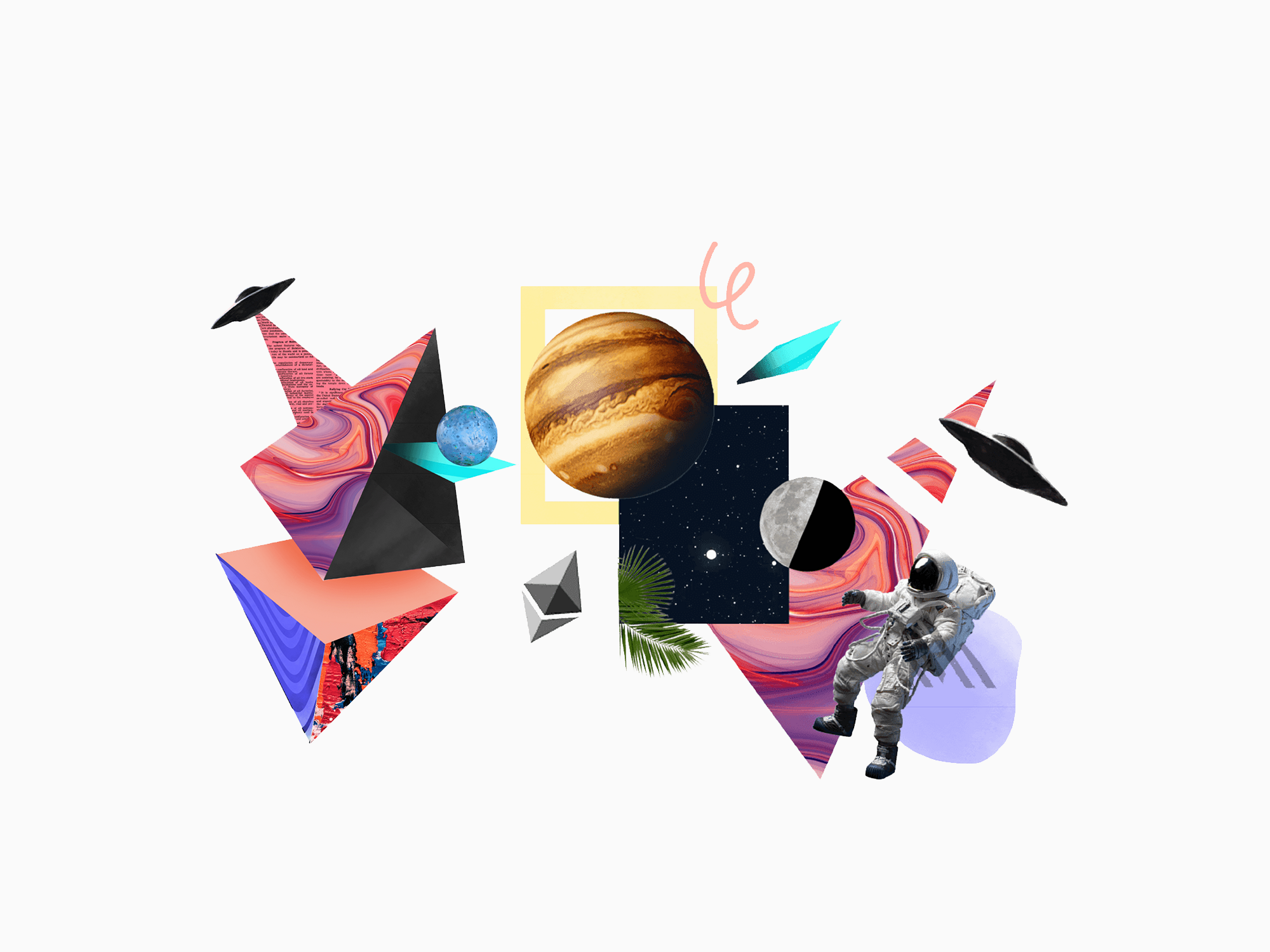
On October 11th 2019 at Devcon 5 in Osaka, AKASHA Founder, Mihai Alisie, announced Ethereum World, a project which seeks to unify the Ethereum ecosystem by integrating decentralized apps into a simple, delightful social experience. Below is a transcript of that talk, which can be viewed on YouTube here.
Minor changes have been made to the content of this talk, in order to make it better fit this format.
"For those of you that haven't heard of AKASHA before, it's kind of an old project in the ecosystem; we unveiled it on May 3rd 2016, World Press Freedom Day and the original intention was to have this experiment trying to combine Ethereum and IPFS to create a decentralized social network, which has some really nice features, like being censorship resistant and, you know, 'decentralized'.
But in January this year we started this series of posts called Metamorphosis and there has been this change in our understanding of what we can do with these technologies when we put them together, and also what the possibilities are. It's still early days and we are still, I think, scratching the surface of what can be done with this toolkit.
But, since the beginning, something hasn't changed. 2016 was when the whole ICO craze began, and "when ICO?" was one of the most frequently-asked questions. We tried to make it clear to people that the main reason we are trying to do this is to figure out if this idea is viable, what the limits are, and to understand the possibilities.
The main message remains the same as always: keep your coins, we want change.
Behind the initiative and the project there is the AKASHA Foundation. This is a non-profit organization incorporated in Switzerland which describes itself as: a non-profit born at the intersection of blockchain and collective intelligence.
Over the three years since we announced, we released three fully-functional Ethereum dapps: the alpha desktop app, the beta desktop app, and the web beta app, which has the IPFS part completely rewritten, so the browsers are actually communicating peer-to-peer; we didn't do any of that gateway 'decentralized' thing.
But, speaking of blockchain, and this being an Ethereum event: what is Ethereum?
This is an easy question, but if you were to ask let's say ten people around here, you'd probably get like ten slightly-different definitions, or sometimes completely different ones. For the purpose of this presentation, let's say that we are in the shoes of someone new to blockchain, or at least to Ethereum.
So they Google something and *boom* they reach this Ethereum.org page, nice!
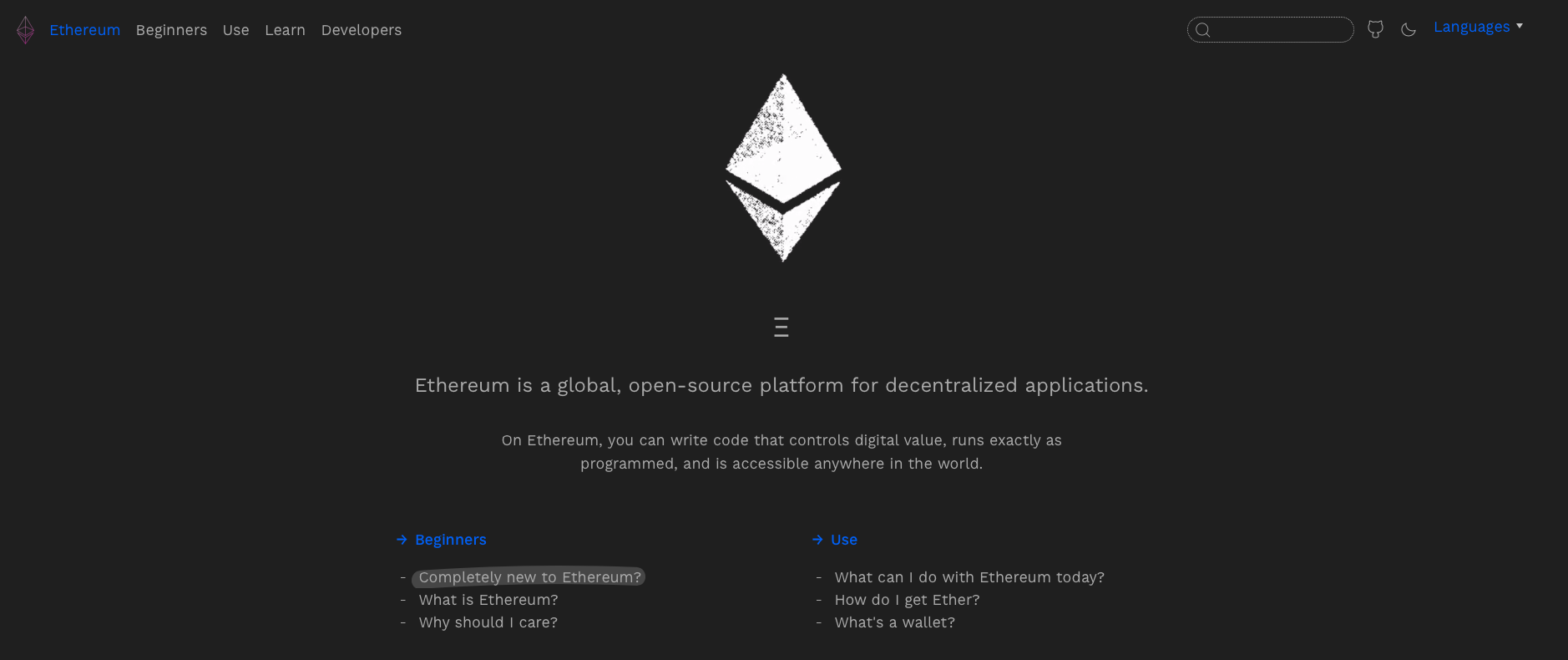
There's a GIF, ooh, this is looking beautiful, right? What is this Ethereum thing? It looks nice. So then you read the page:
"hmmm so it's a global, open-source platform for decentralized applications, hmmm so this is kind of like an app store of sorts? Where you have these apps? I'm curious, I want to try this."
So then, if you click, for example, "use" you are greeted by this list of applications; usually, I think as a user when you click "use" it's something that you actually experience, not so much something you read. For a new potential user, who is trying to figure out what Ethereum is, and what it means in their life: what impact it could have, it's a bit overwhelming to say the least.
The problem which is at the root of this is that user experience is sometimes an afterthought, especially when we work on our projects and we focus too much on the actual technology, like: "damn that transaction, mmm that library isn't working" and then in the months after development: "yes! That works, but the general experience is not that great."
We actually conducted user research in the community, and for those brave enough, those users that from the beginning clicked, went through the list, and who are now onboarding and so on, the general feeling is that it's something very hard to use and cumbersome and many times they are discouraged, claiming that parts are too hard for them.
In our user research we tried to reach out to a number of meetup organizers, meetup participants, and members from the community - Ethereans, not the fans; those that are passionate enough to go through some pain to get that Ethereum magic. One quote from this research is particularly insightful, and that quote is: "dapps are like toys and games that noone is having fun playing with" Right in the feels. It's not something you want to hear, but it is something real.
Another interesting insight here is that Ethereum this magical thing, hard to describe, this unicorn in cyberspace for a normal user; they associate Ethereum with whatever app is their touchpoint. Every Ethereum app and service in the world is kind of like an ambassador for the Ethereum ecosystem. If someone tries an Ethereum app, and is like "man, that onboarding is too hard" that's going to be the associated idea.
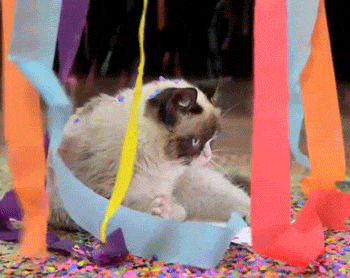
I know what you're thinking, some of you: "but tokens" there is an economic incentive, and you go through the pain because there's some kind of reward at the end of the journey. In our research, we found that actually, the reality looks like the image above: YAY, token drops, but people are not that enthusiastic because the experience is not great, so it's not something you do for enjoyment, it's something that you do to maybe get that token and then maybe sell it on an exchange.
So the question is "how can we improve this Ethereum experience?"

I think that the first step towards this is to understand that Ethereum is more than just a blockchain, it's more than just a technology. This is a quote from Vitalik which captures this idea: that money is fundamentally a social thing in a much deeper way than encrypted two-party communication. I extend this to say that Ethereum is also this social thing, and that programmable money is fundamentally a social thing. This is something that we should keep in mind.
To exemplify this, this is a visualization of the Ethereum repos on Github; it's sped up a bit, you can see the date above. The main idea is that Ethereum is not just this static, abstract idea somewhere, it's a living, social organism that's formed from this network of people making these contributions and this whole idea, entering our reality as lines of code, is more than just technology, it's also this network of people.
With AKASHA between 2016 and 2018 we focussed our efforts on building these apps. If Ethereum is this decentralized app platform, let's say like a decentralized app store, we tried to put one of these apps in that decentralized app store and the functionality of that app would be a social network, running on Ethereum. Since then, our understanding of what can we do to maximize the impact that we have has changed.
The greatest thing that we can achieve, considering that we are just a handful of people is to actually build a framework. Even though it's not a very accurate comparison, it helps maybe to imagine the AKASHA World Framework as kind of like a WordPress for social networks where people and communities can deploy their own customized, purpose-built, purposeful social networks fulfilling whatever needs they have as a community. We have reached 2019 realizing that, coming from building a social network ON Ethereum, Ethereum IS the social network.
At the beginning of the slides we had the title of "Unifying the Ethereum Ecosystem" sounds like "hmmm, I don't know what to say about that." This is particularly interesting because in the ecosystem we have this debate, even among ourselves, as a community of people that get what Ethereum is, it's like:
"man, Ethereum is this decentralized finance platform"
"na na na, Ethereum is a world computer,"
"na na na..." and you have this internal debate - it's everything and more.
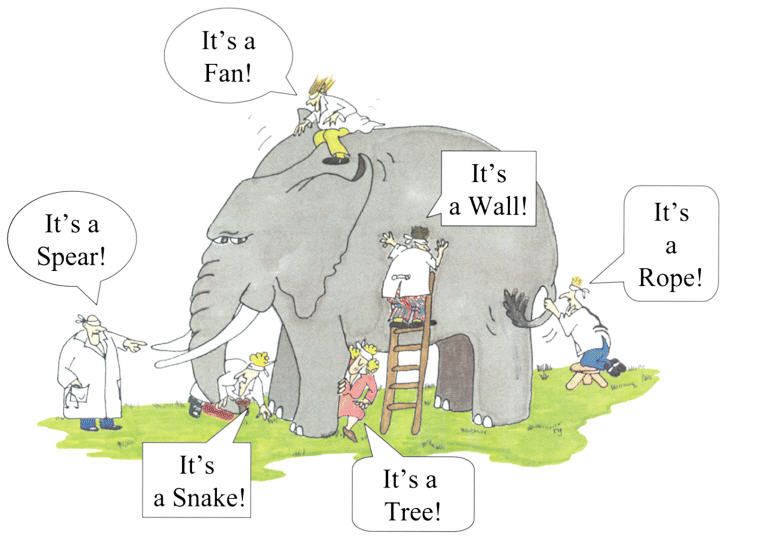
Sometimes it's hard to see that bigger picture, so, with that framework that I mentioned - the AKASHA World Framework - what we decided to do is to have like a first use case that we'll be able to use to show why this is awesome, and why Ethereum being the social network is something amazing, and how with all these scientists that are saying: the elephant is a snake, or it's a rope, and so on... decentralized finance or world computer, they're all right.
The idea is, and part of the user experience challenge is, to make it user friendly enough. The first social network that we are building on this Framework is Ethereum World. The idea is on Twitter we have the ability to embed a GIF, which is fun; what if we take this idea and this ease of use, but this time make it for something useful? In this case embedding actual dapps that you can interact with, so in here we have the example of how you would be able to add an app, in this case we have Aragorn. Let's say we want to create a vote, and this is a proposal, and then, boom, you just confirm so now it's inside your post, and now you click publish, BAM.
You just made an Ethereum interaction, you, no blockchain.
So the Ethereum experience, I think is improving in this way, and it's doing it through an interface that people are already familiar with, so the learning curve is less steep, and less intimidating, at least to begin with.
To exemplify this, there are a couple of other examples, this works also for creating bounties, a few clicks and, boom, you've created a bounty, similarly if we have something like Augur - a prediction market - you can create a bet using blockchain, boom, confirm, you have your prediction market embedded in your post and so on and so forth. Something else that is interesting is, when considering the social aspect of Ethereum, the social discovery of what are the apps that are cool and that are useful.
What's the state of the art of finding apps? Something like stateofdapps some website that usually has a list; you have to go there and click something, it's not necessarily ideal. But what about this? Between ourselves, because we know each other and follow each other, we can say: "I need to create/I need this functionality, what's the best app?"
You can just ask this and people in their comments, because you can just embed these apps, can give you answers; the library of apps that will be integrable grows with each integration, and the functionalities and possibilities in this Ethereum World grow with each integration - that's pretty cool, right?
Something else which is interesting is the functionality that would be built into seeing an app. When you use Telegram and someone sends you a sticker you say "oh, that's a cool sticker" then you just add it to your own stickers, I think something similar when it comes to Ethereum apps is useful. When someone publishes, for example, a prediction market bet, or someone creates a bounty with a particular app, make it easy. You like that functionality and it's useful for you? Done, you have it in your collection, next time you want to publish something you have it at your fingertips.
This process is less intimidating and more accessible. The keywords here are: accessibility, ease of use, and adoption. This is something we're still wrapping our heads around, but things get super interesting when you have the idea of threading when you can embed in each of these posts an app. This is kind of interesting, because you can create flows. It helps to imagine maybe something like creating an Aragorn DAO; maybe the next post would be linked to this with a proposal the next with a bounty; and the next with an NFT collectible for the people that participated in the DAO or in the proposal. The possibilities are kind of cool looking ahead.
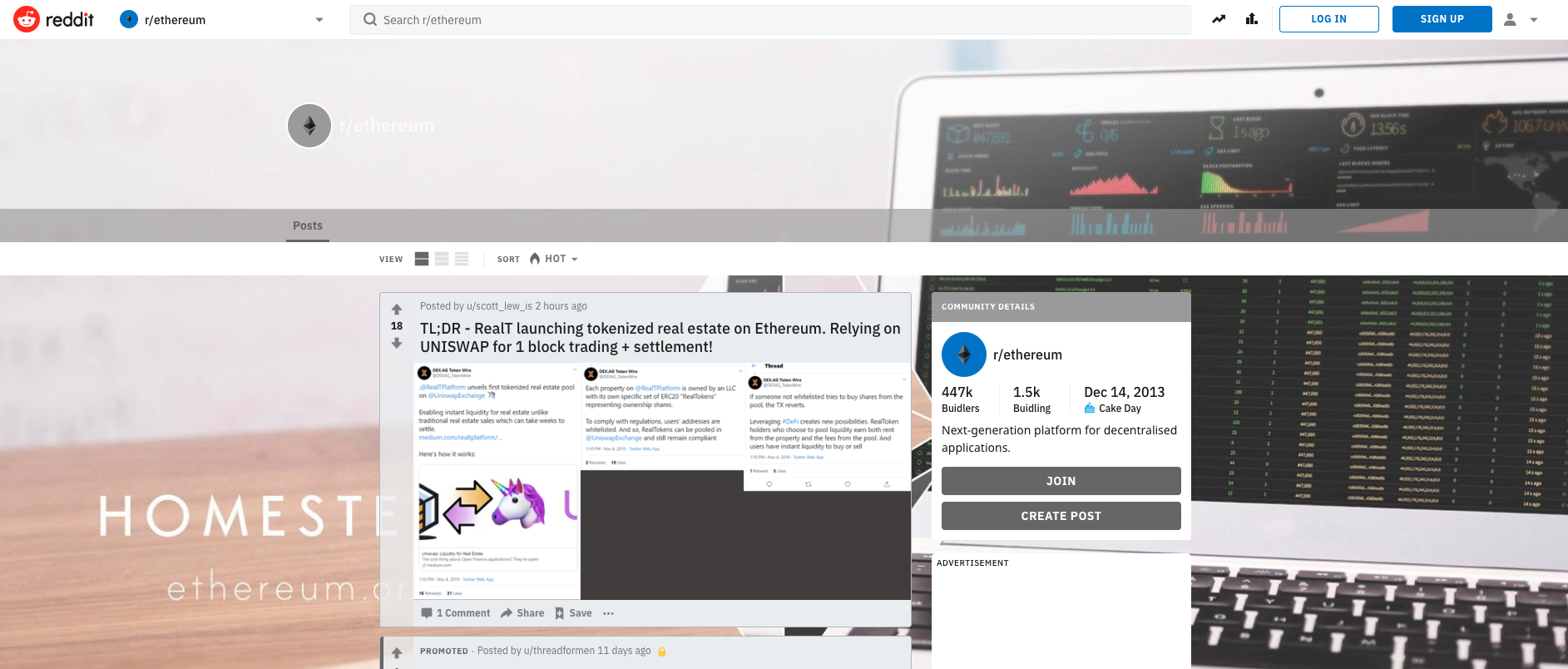
Taking a couple of steps back, this is the biggest home of the Ethereum community, right? Reddit.
The idea is that there are over 400,000 people using Reddit, and when it comes to Reddit and Ethereum, Ethereum being the platform of applications and so on, it's not really well suited. I think together we can create this Ethereum World for the Ethereum community and dedicate it to actually release this synergy, because these apps can talk to each other, can be combined in new ways, and they can be shared. They can be socially discovered and we can open a new world of social interactions.
What do I mean by that?
You have these contracts and these applications throughout the ecosystem - 1000s of them - and just as you have user profiles, you could also have app profiles - or dapp profiles. These are not just static things, these are things that you can interact with.
Let's say you discover when you search something like Aragorn; in their profile you have a list of the most popular actions, like: "assign tokens" and "create new votes" and so on. Similarly, if we take an example like Gitcoin, you have the most popular actions being "create a bounty" and so on. The idea is to make it easy, so we can accelerate this adoption, not necessarily to look outside the community as we already have over 1.2 million people inside. The sad part is that less than 1.5% of us actually use dapps, and that's kind of tragic, if this is a decentralized app platform, the usage of the apps is something that should be closely looked at, encouraged, and nurtured.
This is why today, on stage, we're announcing Ethereum World. We have opened the sign ups for the alpha - we're actively working on developing it - but the idea here is not just to sign up, leave your email, and then come back when the app is ready, you can do that, but we invite you to do something more.
Why is that?
Because I think Ethereum's most undervalued asset is not found on the financial charts. not on any of them. I think Ethereum's most undervalued asset is its community, and there are over 1.2 million people using meetup to self-organize and have Ethereum events. When you look at the effort involved, these people have to be passionate enough to get up, get out, and participate in these events physically, which is a higher threshold of engagement than just sitting and home and scrolling through Reddit.
These people, even though they are so passionate, and they are willing to go out to these events, they are not using the dapps. The level of actual usage is limited to a wallet or sending tokens and so on, and Ethereum can do so much more.
Ethereum is just living, it's not alive; we can bring it to life, together!
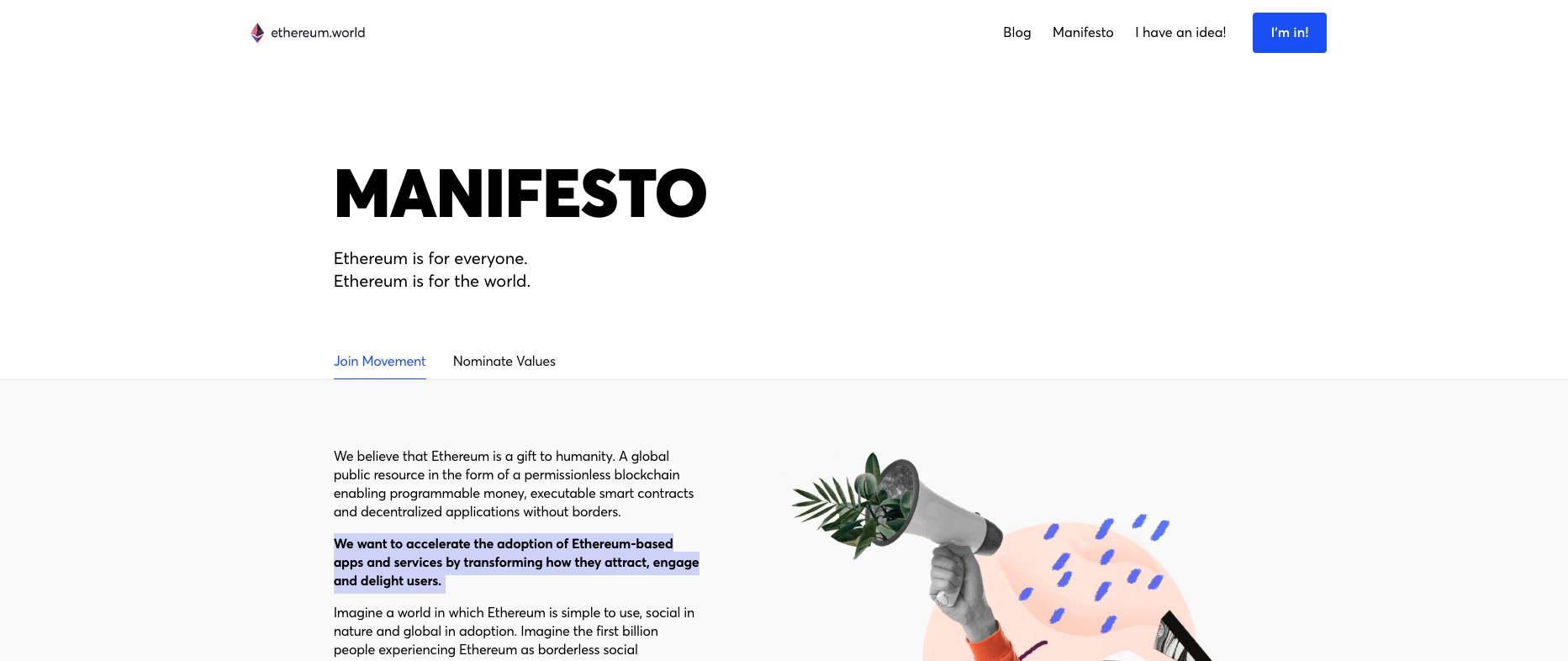
Coming back to the Ethereum World website, I'd like to attract your attention to two things. One is the manifesto. On the manifesto page, there's also a section called "Nominate Values" - speaking of culture and speaking of the community aspect I think that values are like the DNA that can be used to codify the culture of Ethereum as an ecosystem. I'm one of the Ethereum cofounders, and in the beginning we were just a handful of guys trying to figure out how to bring this project to life. Now there's millions of people and thousands of applications living on it, but this discussion about the values and the culture was, let's say, neglected to a certain extent.
We didn't have this discussion; so we invite you now to have this discussion and to propose these values, what are the values that you think Ethereum should have? That we should have as a community? And then vote on them.
According to this we can build a list of values that will reflect the actual desires and the values of the community.
The second thing that I want to attract your attention to is "I have an Idea!" This development of the world is not going to be something top down - we don't want that. We want this to be decentralized, distributed, and to tap into the collective intelligence already present in this community. So, if you have an integration that you'd like to see, an Ethereum dapp you want to use but it's hard to use, just propose it. If you have a feature that you'd like to use somehow, if there is a language that you want to have this application in, request it!
We are open to this and we invite you to become active cocreators and make this your world. The theory of action is to build this for collective impact and there are a couple of pillars. The idea is to establish a shared community vision: evidence-based decision making based on the votes and so on, and collaborative action, and one of the things in the process is to achieve that self sustainability, and that collective impact.
Why?
Because the next time someone asks you "can I haz Ethereum dapp?" You will be prepared and you will have something at hand to show them why Ethereum is awesome, why Ethereum is cool, and why it is better than other things which came before.
Not only can they have a dapp, they can have a whole world of dapps.
This is the transition from the Etherchain - just blockchains, transactions, hashes - to the Etherweb, something that's useable.
An interface that accelerates the adoption of Ethereum as a vibrant ecosystem of dapps developed by passionate developers. I invite you to join the fun on ethereum.world and to WORDL, move that thinking from HODL, to BUIDL, to now WORDL, from building features to solving problems, together. Thank you!"

